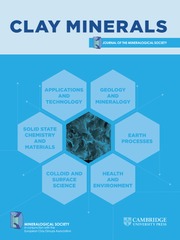
Professor Maria Pilar Mata Campo, research scientist at the Geological Survey of Spain (IGME-CSIC), passed away in Madrid on 19 February 2024, following a battle with cancer. Pilar, as she was known by friends and colleagues, was the co-coordinator of ‘Geosciences for a Sustainable Planet’, a new networking effort funded by the Spanish Research Council, CSIC, and aimed at providing a collaborative platform to tackle environmental and economic challenges from an Earth sciences perspective.
Pilar completed her degree in Geology at the University of Zaragoza, Spain, where she also obtained her PhD in Geological Sciences in 1997 with a study on the low-grade metamorphism of the Cretaceous Cameros Basin in the Iberian Range. She was a postdoctoral fellow at the University of Michigan with Professor Don Peacor (1997–1999), professor at the University of Zaragoza (1992–2000) and full professor at the University of Cádiz (2000–2010) in the Faculty of Marine and Environmental Sciences. In 2010, she moved to the Geological Survey of Spain, where she continued leading projects in the fields of clay mineralogy and crystallography, regional geology, low-grade metamorphism, marine and lake geology and environmental sciences. She was a leader in multidisciplinary teams applying multi-indicator approaches to scientific problems, and she participated in numerous lake and oceanographic expeditions. From clay mineralogy to clathrates, from the impacts of global changes on marine and lake depositional systems to the use of novel natural resources (volcanic ash) as construction materials or to the storage of hydrogen in salt caverns, she worked tirelessly to create synergies between industry, research institutions and administrations. She published excellent research on topics related to mineralogy, crystallography and mineral transformations, gas hydrates, sedimentary geochemistry, limnology and eutrophication and environmental and climatic evolution in the Iberian Peninsula (https://orcid.org/0000-0002-8821-9685).
Pilar believed strongly in the good management and governance of geoscience institutions and facilities, and she dedicated much effort to improving such matters everywhere she worked. At the Geological Survey of Spain, she coordinated the Core and Geological Sample Repository, the largest in Spain. She was keen to apply new techniques and to acquire new equipment (electron microscopes, multi-sensor platforms, hyperspectral cameras … you name it!) and to make them available to large research institutions and so to provide their services to the whole scientific community. A firm believer in FAIR (findability, accessibility, interoperability and reusability) principles, she worked to integrate databases across the European data infrastructure so as to provide transnational access and to foster studies in the fields of hydrogen/CO2 storage, mineral/energy resources and 3D geology. She was very active in the International Continental Scientific Drilling Program (ICDP) and was a member of the ICDP Science Advisory Group (SAG) from 2019 to 2022. Pilar was one of the principal investigators of IMMAGE (Investigating Miocene Mediterranean–Atlantic Exchange), which included, for the first time, a deep drilling project in Spain (Guadalquivir Basin).
Pilar was a member of and participated actively in the Sociedad Española de Arcillas (Spanish Clay Society) and the Sociedad Española de Mineralogía (Spanish Mineralogical Society), acting in the latter as a treasurer (2011–2014) and member of the executive committee (2015–2022). She was dedicated to the work of these societies and is remembered as a reliable supporter of fellow members.
Pilar was committed to providing the best learning opportunities to students and to the enthusiastic communication of our science to the public. She believed that the best possible science is open, participatory, diverse and created in communities. Those who knew her personally enjoyed her generosity with her time and ideas, her passion for knowledge and new technologies and her commitment to citizen engagement in science. She was a tireless champion for the geosciences, brave, supportive and caring. At a time of planetary crisis, her comprehensive vision of the Earth system, from low-grade metamorphism to the signals of the Anthropocene in lakes and oceans, helped to inspire the geosciences to tackle some of these problems. Thanks for everything, Pilar.

